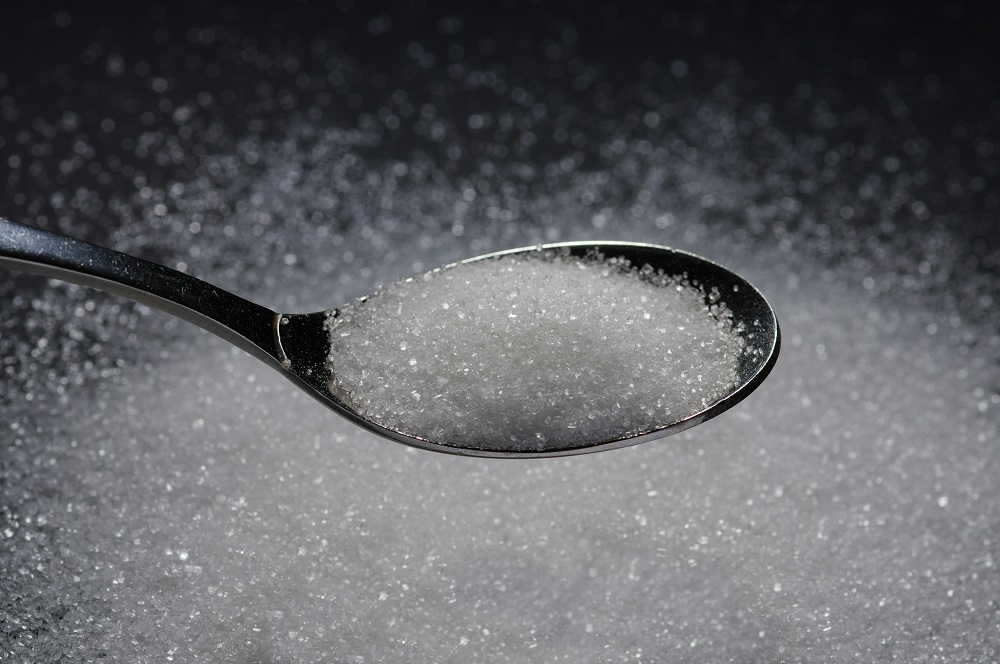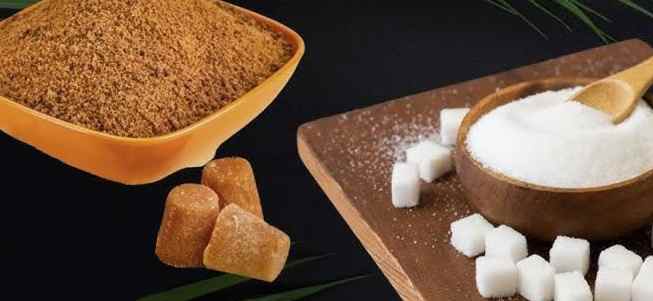The debate between jaggery and sugar has been ongoing for years, particularly as more people become conscious of their dietary choices. Both are sweeteners commonly used in various cuisines, but they differ significantly in their production, nutritional content, and health implications. This article will delve into the differences, benefits, and drawbacks of jaggery and sugar, helping you make an informed choice. Mohit Tandon from Houston talk about Jaggery vs Sugar. What is Better ? :
What Is Jaggery?
Jaggery is a traditional unrefined sugar made from the sap of palm trees or sugarcane. Its production involves boiling the sap until it thickens and solidifies. It retains some of the natural molasses found in the sugarcane, giving it a rich flavor and a dark color. It is often referred to as “natural sugar” and is widely used in South Asian, African, and Middle Eastern cuisines.
What Is Sugar?
Sugar, particularly white granulated sugar, is a refined sweetener derived from sugarcane or sugar beet. The refining process involves extracting the juice, purifying it, and then crystallizing it. This process removes many of the nutrients found in the original plant, resulting in a product that is primarily composed of sucrose. Sugar is ubiquitous in modern diets and is used in countless food products.

Nutritional Profile
Jaggery
- Calories: it has about 383 calories per 100 grams.
- Carbohydrates: Approximately 98 grams, primarily from sugars.
- Minerals: Rich in iron, magnesium, potassium, and calcium.
- Vitamins: Contains small amounts of B vitamins and antioxidants.
Sugar
- Calories: White sugar contains about 387 calories per 100 grams.
- Carbohydrates: Nearly 100 grams, primarily composed of sucrose.
- Minerals and Vitamins: Contains negligible amounts of vitamins and minerals due to the refining process.
Health Benefits of Jaggery
1. Rich in Nutrients
Firstly, Jaggery is often touted for its nutritional benefits. Unlike refined sugar, it retains some minerals and vitamins, making it a more nutrient-dense option. Its iron content can help combat anemia, while magnesium and potassium support various bodily functions.
2. Digestive Aid
Secondly, Jaggery is famous to stimulate digestion. It contains small amounts of fiber and helps cleanse the digestive tract by promoting the production of digestive enzymes. Many cultures consume jaggery after meals to aid digestion and reduce bloating. – Mohit Tandon Houston
3. Antioxidant Properties
Thirdly, Jaggery contains antioxidants that help neutralize free radicals in the body. These compounds can protect against cellular damage and may reduce the risk of chronic diseases.
4. Energy Booster
Jaggery provides a quick source of energy due to its high carbohydrate content. Athletes and laborers often use jaggery for an energy boost.
5. Immune System Support
The presence of various minerals in jaggery can support the immune system. Regular consumption may enhance overall immunity and help the body fight infections.
Health Drawbacks of Jaggery
1. High Caloric Content
While jaggery is more nutritious than sugar, it is still high in calories. Overconsumption can lead to weight gain and related health issues.
2. Blood Sugar Levels
Despite its potential benefits, jaggery still affects blood sugar levels. Individuals with diabetes should consume it in moderation, as it can cause spikes in glucose levels.
3. Not Suitable for Everyone
Basically, Jaggery may not be suitable for individuals with certain dietary restrictions or those who need to limit their sugar intake for health reasons.
Health Benefits of Sugar
1. Immediate Energy Source
Sugar provides a quick source of energy, making it a popular choice for athletes and those needing a rapid energy boost.
2. Versatility in Cooking
Sugar is highly versatile and can be used in various culinary applications, enhancing the flavor and texture of foods.
3. Palatability
Many people enjoy the taste of sugar, making it a staple in desserts and sweet dishes.
Health Drawbacks of Sugar
1. Empty Calories
Refined sugar provides calories without essential nutrients. Excessive consumption can lead to weight gain, obesity, and nutrient deficiencies.
2. Increased Risk of Chronic Diseases
High sugar intake is linked to various health issues, including diabetes, heart disease, and dental problems. It can lead to insulin resistance and increased triglycerides.
3. Sugar Cravings
Consuming sugar can lead to cravings and a cycle of dependency, making it challenging to reduce intake.
Jaggery vs. Sugar: The Taste Factor
Jaggery
Jaggery has a distinct, rich flavor that varies depending on its source. It can be slightly earthy and is often described as having caramel notes. This unique flavor makes it popular in traditional sweets and savory dishes.
Sugar
Sugar has a sweet, neutral flavor that blends well with various foods and drinks. Its versatility makes it a common choice in baking and cooking. – Mohit Tandon Houston
Culinary Uses
Jaggery
- Traditional Sweets: Cooks often use jaggery in Indian and Asian sweets like ladoos, halwa, and payasam.
- Savory Dishes: It can also enhance the flavor of savory dishes, adding depth to curries and sauces.
- Beverages: Many people commonly use jaggery in teas and health drinks, particularly in traditional remedies.

Sugar
- Baking: Sugar is essential in baking, providing sweetness and structure to cakes, cookies, and pastries.
- Beverages: People widely use sugar to sweeten drinks, including coffee, tea, and sodas.
- Preserving: Manufacturers often use sugar in jams, jellies, and preserves because of its preservative qualities.
Environmental Impact
Jaggery
The production of jaggery is generally less industrialized than sugar production. It often involves traditional methods that have a lower environmental impact. However, sustainable practices vary by region.
Sugar
Sugar production, particularly from sugarcane, can lead to significant environmental concerns. These include deforestation, pesticide use, and water consumption. The industrial process of refining sugar also contributes to carbon emissions. – Jaggery vs. Sugar: Which Is Better ? – Mohit Tandon Houston
Conclusion
When comparing jaggery and sugar, both have their unique benefits and drawbacks. Jaggery offers more nutrients and health benefits, making it a preferable option for those looking for a natural sweetener. However, it is still high in calories and can impact blood sugar levels, so moderation is essential.
Sugar, while versatile and widely enjoyed, is linked to numerous health issues when consumed excessively. It provides little to no nutritional value and can lead to health complications.
Ultimately, the choice between jaggery and sugar should depend on individual health goals, dietary preferences, and cooking needs. For those seeking a more nutritious option, jaggery may be the better choice, while sugar can still play a role in moderation.
Making informed decisions about sweeteners can contribute to better health outcomes and a more balanced diet.
